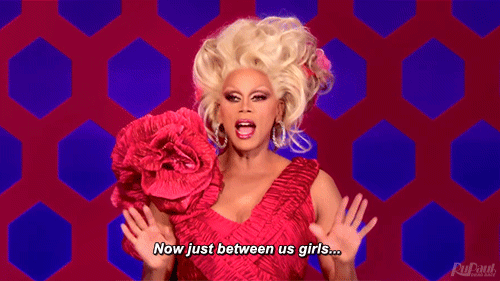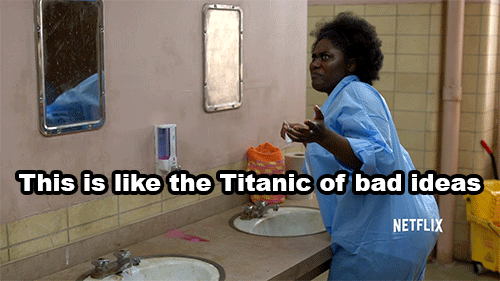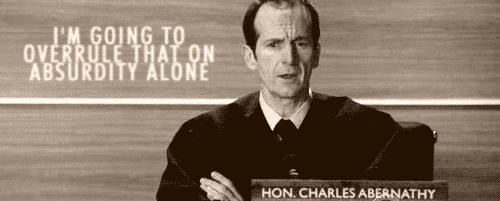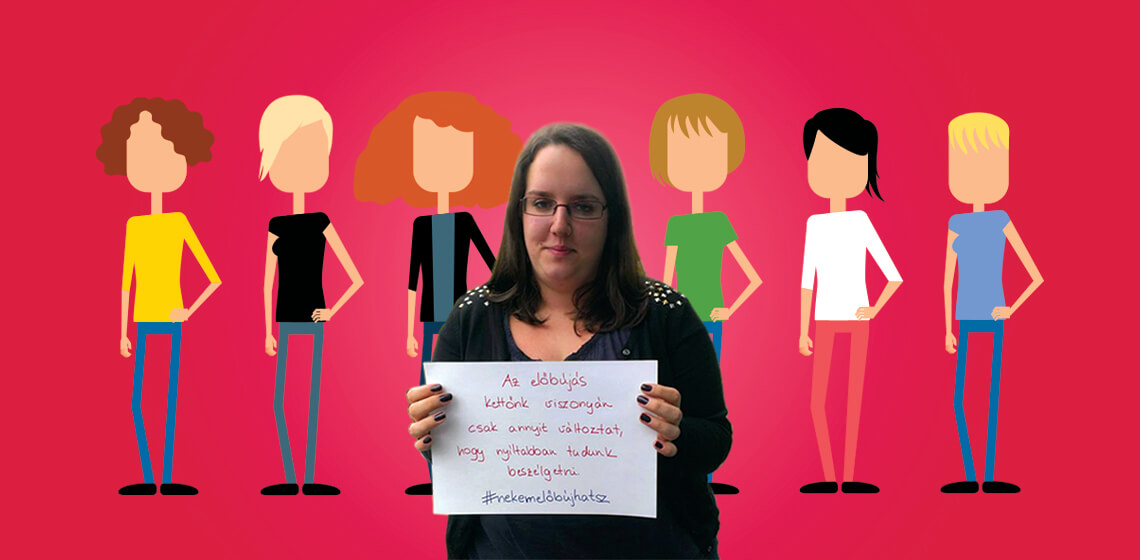It’s incredibly weird to write about coming out as a straight person, since I’m only on the receiving end. I got the easy task - but it’s still not that easy, and we should talk about that. I’m not an expert by any means, I’ve just been a part of a few coming out talks. Probably because of those, this topic has been of interest to me for a while: did I do the right things, was I supportive enough? So hopefully I have something worth listening to.

A disclaimer: when I talk about coming outs, I don’t just mean the type of conversation where it’s an actual confession, where the words “I’m a lesbian*” are uttered - rather, every conversation where the other person’s intention is that you learn about their identity. Especially because, as I see it now, both types are equally intentional. It doesn’t matter how nonchalantly someone says “and then my boyfriend said” or “we were on holiday with my girlfriend”, they have been thinking and planning and contemplating. Is it the right time, the right occasion, the right person to come out to?
I’ve heard quite a few coming outs, but only from friends, acquaintances or colleagues. I know that a parent-child dynamic is very different in this aspect, but I don’t have any experience in that and therefore I won’t talk about that. Even though no two conversations are alike, what never changed is that it is always a great feeling. I really hope I was able to show it every time, but if I didn’,t let me thank everyone for trusting me. It really is an amazing feeling that someone trusts you enough to let you in. It doesn’t matter if you’re among the first five or the first hundred to know, if someone trust you enough to share this, that is something to treasure.
Okay, we should always appreciate it, cool. And now what?

There are many, many articles on the do's and don’ts of receiving a coming out. These lists can be really helpful, but it’s also important to adapt to your own situation. It might make it more difficult to be prepared, but the thing is, the majority of it is about you. You are the one who has a relationship with that person, and regardless of how close you are, the trust they are placing in you comes from that relationship.
The short, snappy, easy to remember tips are all fine and dandy, but the part you really have to pay attention to are the explanations. It’s much more important to understand why they advise you to act a certain way than to follow the advice to the letter. I would like to focus on four of these tips.
1) Don’t say “I knew it!”
Even if you did know it. Coming out is not a videogame, where you solved the riddle and now you’re finally a level 8 mage. It’s an incredibly important step in your friend’s life. It doesn’t mean that if you’ve thought before that your friend might not be straight, you have to keep it a secret - the whole point of coming out is to make your relationship more honest. But please do keep in mind that this is not about you and your exceptional gaydar. This is about your friend and their confession - and not just because now you know, because they told you. The actual act of saying it out loud, uttering the words “I’m a lesbian*” is an incredibly important part of their journey to self-acceptance, and you absolutely cannot take away from that.
2) Don’t ask nosy questions about their love life
This is the one piece of advice that confused me for quite a while. I thought the love life of my gay friends were a taboo, that I should ask them differently than my straight friends. That, of course, is the exact opposite of how should we act. This piece of advice only means that your friend who just came out to you 3 minutes ago is still a person, and not a handy guide to understanding gay people. You can ask them about their own feelings and experiences - hopefully these are the things that interest you anyway, you being friends and all - just keep in mind that they haven’t turned into some all-knowing oracle about the subject of LGBTQ+ people

3) Don’t chastise them for not telling you sooner
Okay, I was too broad before, not everything needs the explanation, I honestly cannot think of a situation where getting pissy over not knowing about it sooner is a sound strategy. They didn’t tell you sooner because this is an incredibly hard decision to make. Simple as that. If you feel like you should have been told sooner, my best advice is, try to understand that this was not against you, or your friendship, and even though you might feel a bit betrayed, you actually cannot understand what’s it like to be in their shoes. It doesn’t matter how understanding you are. You have to trust your friend enough to know that they did the best they could and they didn’t lie to you out of malice.
However, you can ask about their decision to come out now, if you are able to do it without making them feel like they did something wrong. If there is something you want to know, it’s okay to ask. You don’t have to feel ashamed of your questions, you just have to be sensitive about when and how you ask them. I have asked a version of this one, when a close friend of mine came out to me. I wanted to know if there was anything we, or, actually, I could have done differently. Is there something I could have done so that he feels safer to come out sooner? So in a way I asked the thing I was not supposed to - but you can do it in a way that is not hurtful and not chastising.
+1 Don’t ask them if they are sure

This one should be so obvious, I honestly cannot even explain why you shouldn’t do this. Yes, they are sure. Yes, really. Absolutely sure.
The one thing that I really miss from these articles though, and from the conversation as a whole, are the “nonchalant” coming outs I’ve mentioned before.
When there is no Talk and no Confession, but rather they just slip in into the conversation. I’ve managed to make a situation like this really awkward before. One of my then-colleagues was telling me about how they renovated their house with his partner, and when he said “boyfriend”, it honestly didn’t register that this was a Thing. The poor guy thought I didn’t hear or didn’t understand, so he mentioned the boyfriend about 10 times in the next few sentences.
So what is the proper reaction? Honestly, I don’t think there is one. They might still hope for encouragement, or show of support, and they just chose this form of letting you know because it was easier. Or, and this is jus as likely, they honestly don’t want to make a big deal out of it. They just want to tell the damn story, which features their significant other, without me getting hung up on the gender of that significant other. Fun game for straight people out there in relationships: next time you tell a story featuring your partner, imagine everyone’s eyes widening at the first mention of said partner, and you only have half their attention from that point forward, the other half being occupied with “OMG you’re gay”.
In any case, the most important part of all this is to let them know that your relationship did not change. Even if it’s only partly true - it did, for the better. You will be able to talk about things more honestly, instead of half-truths or keeping things completely secret.

A few years back, Budapest Pride had a campaign for Coming Out Day: people were asked to send photos with short statements, using the hashtags #ICameOut and #SafeToComeOutTo. Mine said “The only thing your coming out can change in our relationship is making us more honest.” Pretty cool, right? I think so. Unfortunately, I didn’t write it. I asked my friend, Margit, who was a volunteer for Budapest Pride at the time, to make my original sentiment a bit more campaign-friendly. I basically just wanted to write “How is your sexuality any of my business?”.

